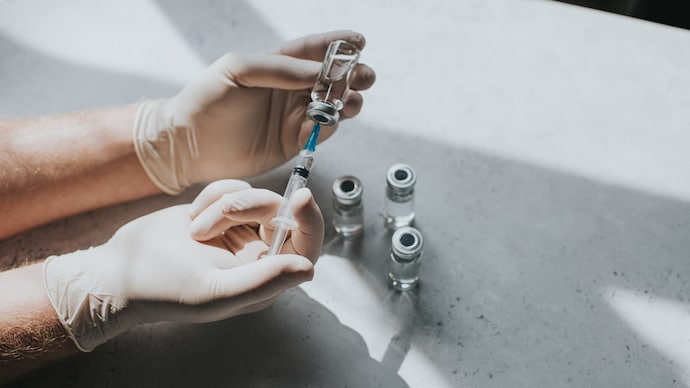Columbia scientists develop new bacterial cancer vaccine: How it works
Researchers at Columbia University have developed probiotic bacteria that can train the immune system to attack cancer cells.

Researchers at Columbia University have created probiotic bacteria that can teach the immune system to attack cancer cells, potentially paving the way for a new class of personalized cancer vaccines.
These microbial vaccines can be designed to target both the primary tumor and metastases (those that spread), with the added benefit of preventing future cancer recurrence.
In preclinical studies using mice with advanced colorectal cancer and melanoma (skin cancer), the bacterial vaccine was able to boost the immune system enough to suppress tumor growth and, in many cases, prevent damage to healthy tissues. Without, cancer was completely eliminated.
The findings, published in Nature, indicate that this bacterial approach may be more effective than peptide-based cancer vaccines, which have been the focus of several clinical trials but have had limited success.
According to Jongwon Im, the PhD student who led the bacterial engineering efforts, the vaccine showed the ability to control or eliminate the growth of both primary and metastatic tumors, increasing survival in mouse models.
A personalized approach
A special feature of this new vaccine is that it can be tailored for the specific cancer of each patient.
“Each cancer has different genetic mutations,” said Dr. Nicholas Arpaia, associate professor of microbiology and immunology at Columbia’s Vagelos College of Physicians and Surgeons.
Dr. Arpaia said, “By programming the bacteria to target these cancer-specific mutations, we can create more effective treatments that trigger the patient’s immune system to detect and destroy their cancer cells. ”
As researchers continue to improve the safety of these treatments, Dr. Arpaia is optimistic that this approach will soon be ready for patient testing.
History of bacterial cancer treatment
The idea of using bacteria to treat cancer dates back to the late 19th century when Dr. William Coley observed tumor regression in patients injected with bacteria.
Even today, bacteria are used in the treatment of early-stage bladder cancer. Researchers now know that some bacteria can naturally move into tumors and thrive in their low-oxygen environment, stimulating an immune response.
However, these natural bacterial responses are usually not strong enough to destroy the tumor on their own. “Bacteria are a great starting point, but they need enrichment to properly direct an immune response,” Dr. Arpaia said.
How did researchers develop the vaccine?
The new approach uses a modified strain of E. coli bacteria. The Columbia team made precise genetic modifications to control the bacteria’s interaction with the immune system, turning them into effective cancer killers.
These engineered bacteria produce protein targets called neoantigens, which are specific to the patient’s cancer cells. By delivering these neoantigens, the vaccine trains the immune system to recognize and attack tumor cells, while leaving healthy cells untouched.
These bacteria also overcome natural immunosuppressive mechanisms that tumors use to avoid detection. As a safety measure, the bacteria are designed to be quickly cleared from the body if they fail to find their target, reducing the risk of an unwanted immune response.
Results and future prospects
In studies with mice, the engineered bacterial vaccine recruited a wide range of immune cells to attack tumor cells, while preventing the immune responses that normally block these efforts.
The vaccine not only reduced tumor growth but also prevented tumor recurrence in cured mice, suggesting that the vaccine could help prevent cancer from recurring in patients.
Before this treatment can be used in humans, each patient’s tumor will be sequenced to identify its unique neoantigen.
The bacteria will then be engineered to deliver these tumor-specific targets and other immune-boosting factors directly to the tumor site, prompting the immune system to eliminate cancer cells throughout the body.
“The bacteria can be manufactured faster than some other vaccine platforms, making personalized treatments more feasible,” said Tal Danino, associate professor of biomedical engineering at Columbia, who co-directed the research.
By allowing the delivery of numerous nascent antigens, this bacterial platform can make it difficult for cancer cells to escape the immune response by mutating, a common challenge in cancer treatment.